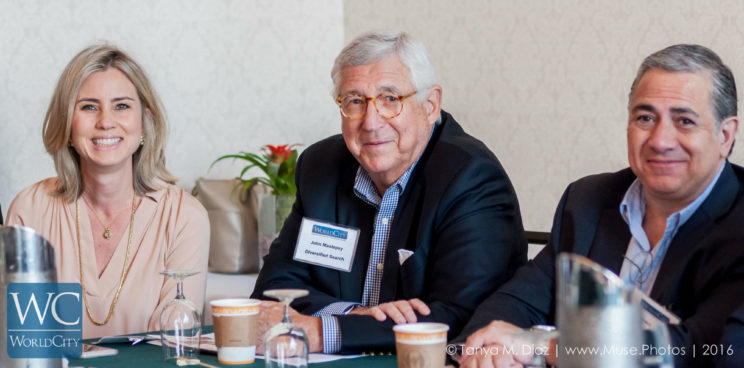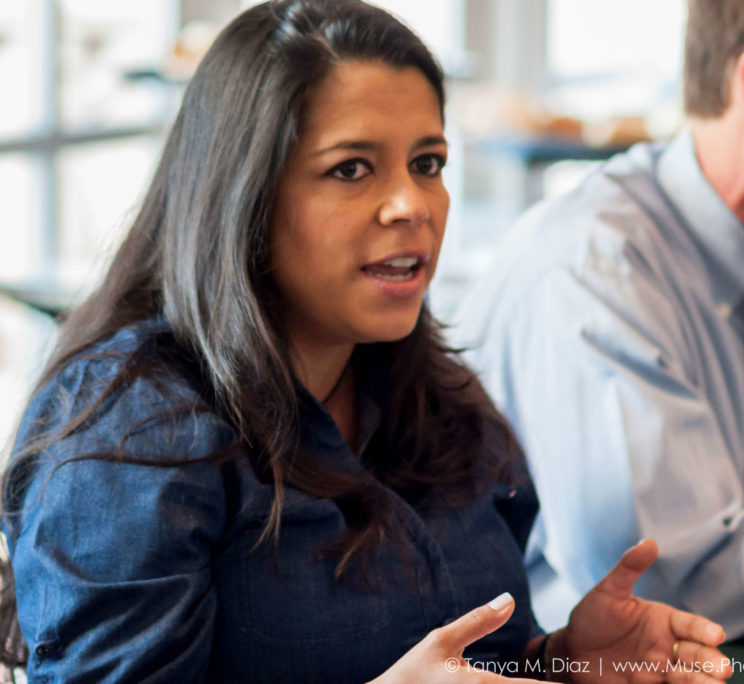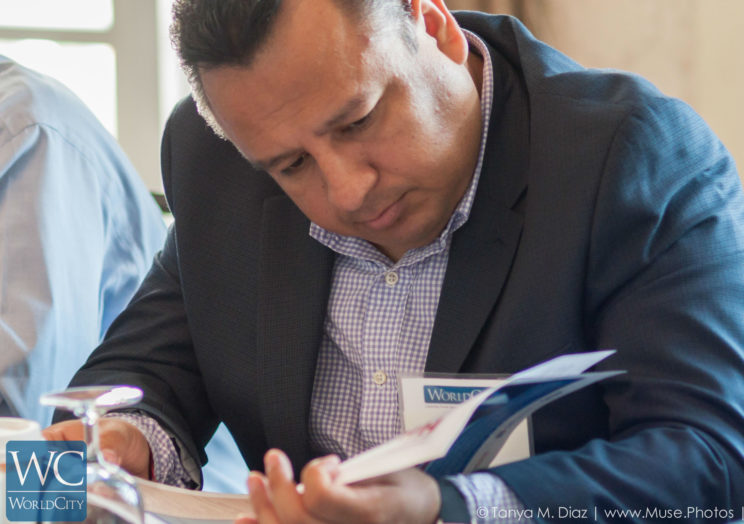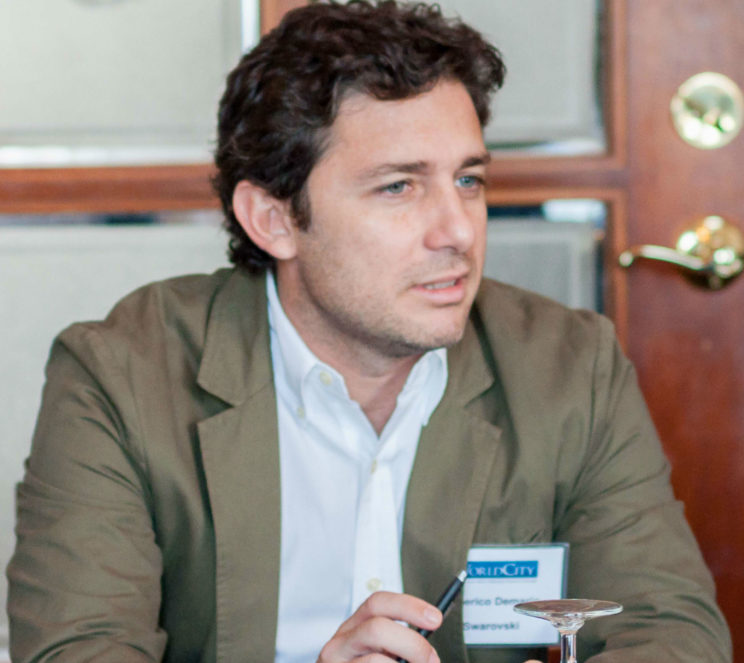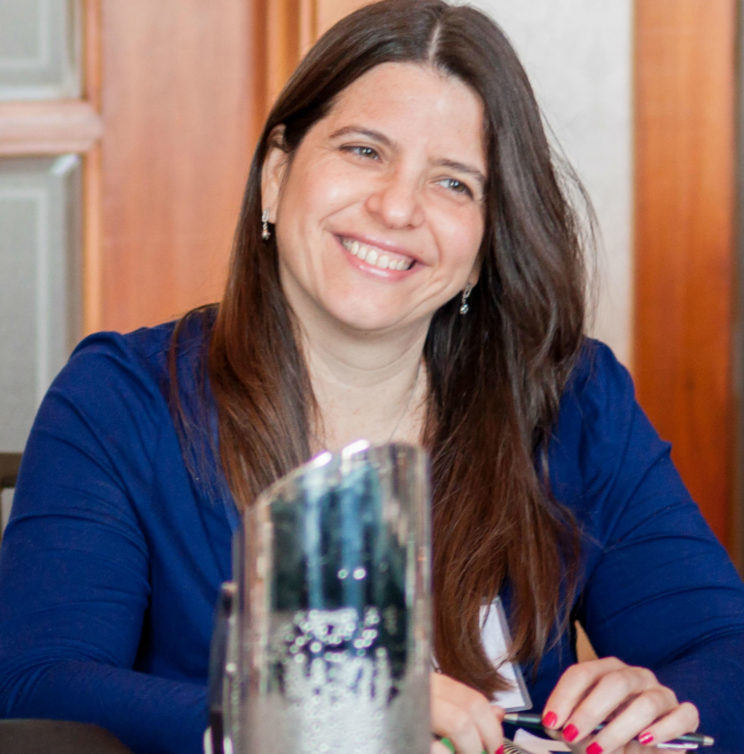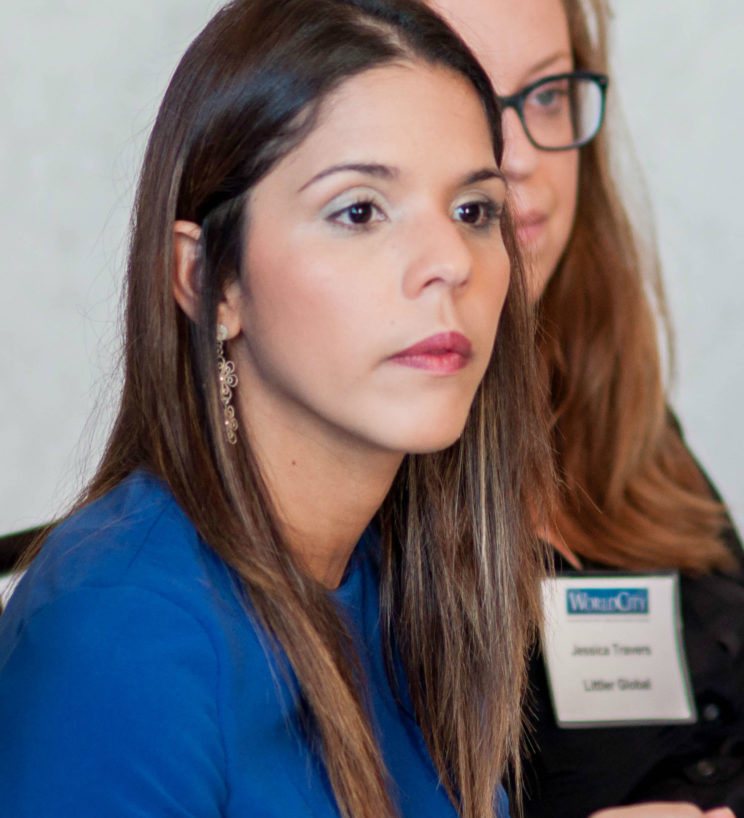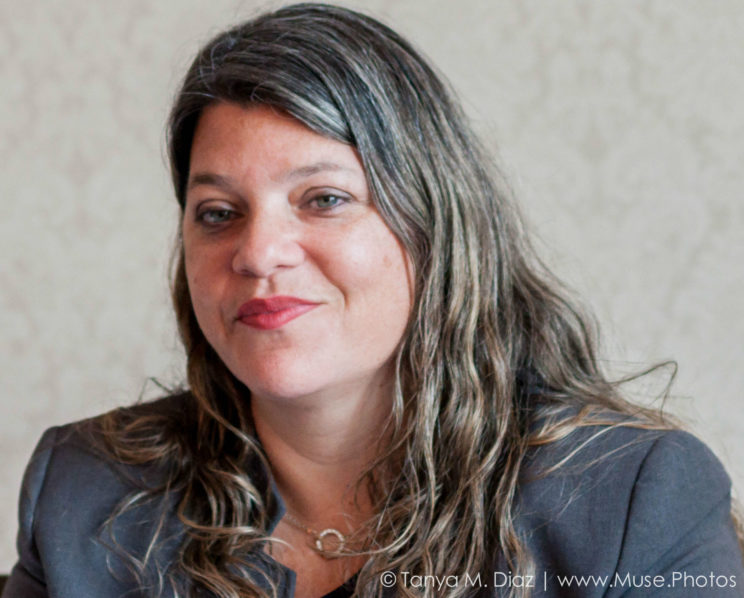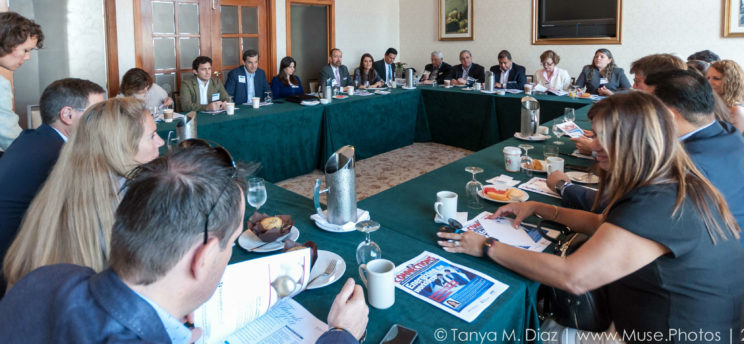Starbucks’ secret ingredient is its people
Everybody can agree, Starbucks brews and sells coffee. Yet while beverages, pastries and other delicacies are its prime products, Isabel Montes, Starbucks’ human resources manager for Latin America, draws a distinction that goes a long way to explain the coffeehouse behemoth’s success.
“We are not about coffee,” Montes said. “We are about people serving other people through coffee.”
Having clarity about its mission and values has always been central at Starbucks. However, explained Montes, embodying that in day-to-day operations depends on committed employees who stay enthusiastic. She made her remarks, “Energizing the Workforce,” at the WorldCity HR Connections roundtable May 13 in Coral Gables.
Montes explained how the company, with some 150,000 employees across the globe, is using technology to assess employee engagement, with the aim of maintaining stable stores with low employee turnover – in an sector where turnover can top 120 percent (though Starbucks’ is far lower, Montes said).
She defines engagement as commitment; the discretionary effort someone puts forth at work; and the intention to stay at the job. “Engagement drives revenue, engagement drives profits and customer satisfaction,” Montes said.
The problem is that traditional engagement measures and evaluations take too long and are too infrequent – especially with a workforce skewed to those in their early 20s.
“That wasn’t working for us,” Montes said. “We decided to go a different route.”
What they did was build two-to-three questions into the software that employees access when clocking out of their shift. The questions are random and can be specific – did you like the new cookie introduced? – or more general, as to the employee’s overall experience at that store.
“We are starting to find out the main questions which are indicators and have a strong correlation with engagement,” Montes said. The system is anonymous and fast. “We try to keep it fun, so the partners (which is what Starbucks calls employees) look forward to what is popping up.”
Baristas make the sales difference
Having happy, enthusiastic employees is important for every business, but it’s crucial for a company like Starbucks. More than 50 percent of future sales come from the relationship between the customer and the barista.
“That is a big deal for us,” Montes said.
When the customer is considering where to have coffee, Montes said, they think of their own barista, who “knows my coffee, and is going to ask me about my wife,” she said.
Customers want the experience as much as the coffee, and emotional connection is at the core.
“Do any of you know the name of the person you talk to at Starbucks?” asked Ken Roberts, WorldCity CEO, of the audience.
Indeed they did, calling out barista names, demonstrating a gustatory understanding why engagement is so important.
“Is there a process in the recruitment period in which you can measure potential engagement?” asked Marta Ramirez, VP, Human Resources, DB Schenker USA/Latin America.
“Yes,” replied Montes. “And it’s very organic.” Store managers hire their own staff and are trained to look for the qualities – such as the way the applicant sees the business – that translate into engagement.
Drivers that correlate with employee engagement, she said, include: feels part of the team; likes working with their manager; has a sense of belonging; feels the store celebrates success; and they would recommend Starbucks as a great place to work.
The company also has a technology-driven process to understand engagement within its non-retail ranks; a short survey that asks more detailed questions, including demographics, along with employment experience and satisfaction.
Crafting ways to increase engagement
The next step was to figure out how to increase engagement, Montes said. “How do you do that, how can you feel this is a company where you want to stay?”
While Starbucks has long prided itself on offering benefits, especially health insurance, to even part-time employees, the company was surprised to discover those perks were not top engagement drivers. Workers were more concerned about the high cost of education. “That was a big finding for us,” Montes said. Now, Starbucks totally funds Arizona State University online bachelor’s degree programs for both part-time and fulltime workers.
Still, audience members wanted to know more about how employees themselves understand the importance of engagement.
“You asked us about how the barista interface affects us when going back to the same Starbucks,” said Marjorie Kean, managing director of Diversified Search. “Are the baristas aware of that? Is that something you expect naturally because of the selection process, or are you training them for that?” she asked.
“All of the above,” Montes replied. “We train them talking about the importance of the human connection, and you are here because you care about your customers.”
What’s more, she said, while workers are evaluated on performance and adherence to company values, promotion depends as well on their record of helping others succeed. It’s an approach that resonates with millennials, for whom being part of a force for good in the world and representing a brand aligned with their values is important.
“What role do you think communications plays in employee engagement, and who do you think owns those communications?” asked Valeria Prado, communications director Latin America, Ecolab.
“That is a big one,” Montes said. “Every initiative, every thing that comes out of this analysis has to be communicated in a way the partners can feel excited about.”
HR Connections is one of four event series organized by WorldCity to bring together executives in the greater Miami area on international business topics. The HR series is sponsored by retained executive search firm Diversified Search, career and talent management specialists Right Management and law firm Littler Global.
The next HR Connections is set for July 15. And on Spet. 22-23, WorldCity will host its fourth annual HR Americas Conference.
